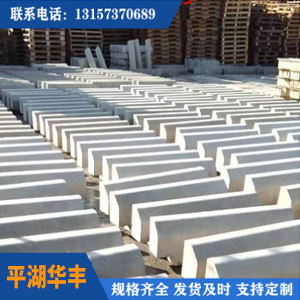Cement brick It is a common building material, which is cast by mixing cement, sand, stone, etc. It has many advantages and is suitable for various use scenarios. This article will discuss the advantages and use scenarios of cement bricks in detail.
1、 Advantages of cement brick
High strength: cement brick has extremely high compressive strength and can withstand a large number of gravity loads. This makes cement brick an ideal choice for buildings, bridges and other basic structures.
Good durability: cement brick has good durability and can withstand the erosion of natural environment and climate change. It is not susceptible to moisture, corrosion and deformation, and can maintain long-term stability.
Fire safety: cement brick is a non combustible material with good flame retardancy. It can effectively prevent the spread of flame and play a role in fire safety.
Thermal insulation: cement brick has good thermal insulation performance. It can block the conduction of heat, reduce the loss of energy, and improve the energy utilization efficiency of buildings.
Environmental protection and sustainability: cement brick is an environmental protection and sustainable building material. It uses renewable raw materials, and can recycle waste in the production process to reduce resource consumption and environmental pollution.
2、 Use Scenarios of Cement Bricks
Residential buildings: cement bricks are widely used in residential buildings. It can be used to build walls, floors, ceilings and other parts of houses. Cement bricks can provide good structural support and thermal insulation effect, making the house more solid and comfortable.
Commercial buildings: cement bricks are also suitable for the construction of commercial buildings. Cement bricks can meet the requirements of durability, fire safety and heat insulation for office buildings, shopping malls, hotels and other buildings.
Public facilities: cement bricks play an important role in the construction of public facilities. For example, in schools, hospitals, stadiums and other places, cement bricks can provide solid walls and floors to ensure the safety and comfort of buildings.
Urban infrastructure: cement bricks are widely used in urban infrastructure construction. For example, for roads, bridges, tunnels and other projects, cement bricks can provide solid structural support and long-term stability.
Agricultural construction: in the agricultural field, cement bricks can be used to build agricultural greenhouses, livestock pens and other facilities. Cement brick not only has durability, but also is easy to clean and disinfect, which contributes to the development of agricultural production.
Parking lots and warehouses: cement bricks are also suitable for the construction of large parking lots and warehouses. The durability and load-bearing capacity of cement brick make it an ideal choice for these places. At the same time, cement bricks can provide good anti-skid performance through rough surface texture.
In short, cement bricks have the advantages of high strength, good durability, fire safety, thermal insulation and environmental sustainability. Therefore, it is widely used in residential buildings, commercial buildings, public facilities, urban infrastructure, agricultural construction, parking lots, warehouses and other use scenarios. In the future, with the development of science and technology, the performance of cement bricks will be further improved to provide better support for construction in various fields.







